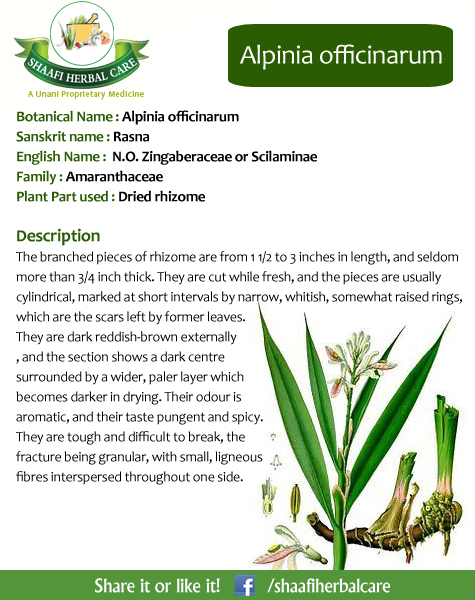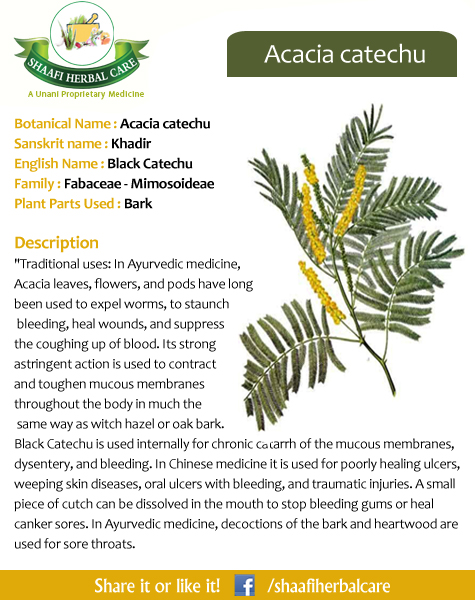Health benefits of cardamom This exotic spice contains many plants derived chemical compounds that are known to have been anti-oxidant, disease preventing and health promoting properties. The spicy pods contain many essential volatile oils that include pinene, sabinene, myrcene, phellandrene, limonene, 1, 8-cineole, terpinene, p-cymene, terpinolene, linalool, linalyl acetate, terpinen-4-oil, a-terpineol, a-terpineol acetate, citronellol, nerol, …
Medicinal plants
Alpinia officinarum
There are three varieties of galangal- Greater Galangal, Lesser Galangal and Kaempferia Galangal. Different galangal varieties vary in their hotness and flavor. Flavor ranges from flowery to ginger-like to peppery cinnamon. Greater Galangal has an orange-brown skin with pale yellow or white interior. Greater galangal can be found in sliced form or powder. Used as …
Aloe Barbadensis
Aloe Vera Benefits Aloe is also an excellent treatment for skin conditions such as burns and eczema. It is often reported that burns can be healed remarkably quickly and the pain reduced very quickly with topical application of Aloe Vera to the burn area. As well as applying topically, Aloe can also be taken internally …
Aegle marmelos
Health Implications of Bael All parts of the Bael, especially the fruit and the leaves, have immense healing properties. Diarrhea and dysentery Dried fruit pulp and its powder are, generally, used for treating diarrhea. Diabetes Leaf extract of the plant is known for its anti-diabetic activity. It has been found that bael extract could significantly …
Adhatoda vasica
Description Malabar nut is a small evergreen, subherbacious bush. The leaves are 10 to 16 cm in length, minutely pubescent and broadly lanceolate. When the leaves are dried, they appear dull brownish green in color and taste bitter. The inflorescence is dense, short pedunculate, bractate and spike terminal. The corolla is large and white, with …
Achyranthes aspera
General information: The many therapeutic benefits of Prickly Chaff Flower have been documented in Indian and Chinese medicinal manuscripts. According to Ayurveda, it is bitter, pungent, heating, a laxative, a stomachic, a carminative and useful for the treatment of vomiting, bronchitis, heart disease, piles, itching, abdominal pains, ascites, dyspepsia, dysentery and blood diseases (Flora of …
Achillea millefolium
Benefits of yarrow Yarrow fights bacteria. Yarrow has an antiseptic action. The bitter parts and fatty acids encourage bile flow out of the gallbladder, known as the cholagogue effect. The free-flowing action improves digestion and prevents and gallstones from forming. Decongestant. Yarrow contains a drying effect and seems to improve coughs and sinus infections with …
Acacia catechu
Description of Acacia Concinna : “Traditional uses: In Ayurvedic medicine, Acacia leaves, flowers, and pods have long been used to expel worms, to staunch bleeding, heal wounds, and suppress the coughing up of blood. Its strong astringent action is used to contract and toughen mucous membranes throughout the body in much the same way as …
Abrus Precatorius
Botanical Name : Abrus Precatorius Sanskrit name : Gunja English Name : Jequirity, Indian liquorice Wild Liquorice Family: Fabaceae Plant part used: Seed Primary Medicinal Uses Skin related problems Abrus precatorius is very effective in treating leucoderma. It you are infected with acne sores or boils, the leaves of the herb serve as a great …
Abies Webbiana
Botanical Name : Abies webbiana Sanskrit name : Talispatra English Name : Himalayan fir Family: Pinaceae Plant parts available: Leaf Description of Abies webbiana: commonly called Talispatra in India is a herb belonging to the Pinaceae plant family. The plant has different names associated with its different qualities. It is called “Dhaatri patra” as the …









